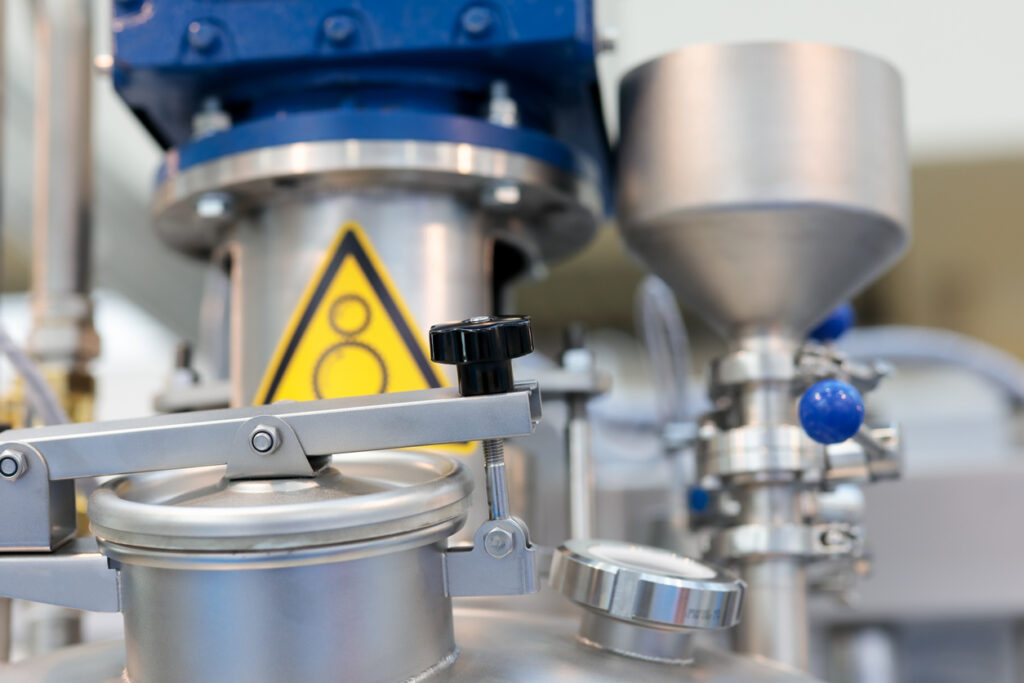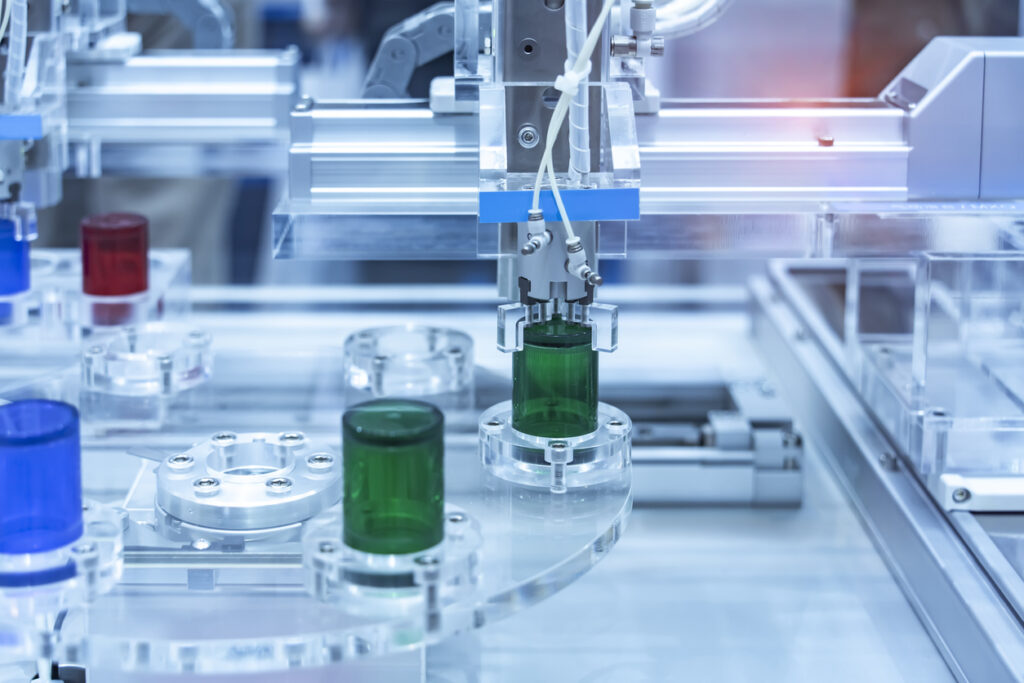Biocatalysis is gaining traction, marking a significant footprint in the chemical synthesis landscape. As the biocatalysis market expands, many companies are exploring this innovative field.
This article unpacks the key advantages of biocatalysis and its pivotal role in industries, especially pharmaceuticals.
What is Biocatalysis?
Biocatalysis refers to using natural catalysts, like protein enzymes, to perform chemical transformations on organic compounds.
In the context of industrial applications, biocatalysis offers a sustainable alternative, paving the way for efficient and eco-friendly chemical processes.
Key Advantages of Biocatalysis in Industrial Use

Biocatalysis represents a convergence of economic viability, environmental responsibility, and operational excellence for the chemical industry. Organizations are meeting regulatory and environmental standards and enhancing their competitive edge through increased efficiency and cost-effectiveness.
Efficiency
Biocatalysis elevates the efficiency of chemical transformations. Enzymes, the biological catalysts, are known for their specificity and speed, ensuring that reactions occur at an accelerated pace, and desired products are obtained in higher yields. This higher efficiency translates into increased productivity and reduced time-to-market for products.
Eco-Friendly
One of the most notable advantages of biocatalysis is its minimized environmental footprint. Biocatalysts operate under mild conditions, reducing the need for extreme temperatures or pressures and cutting down energy consumption.
Furthermore, they diminish the reliance on hazardous chemicals and solvents, leading to cleaner, greener, and safer processes that align with global sustainability goals.
Specificity
Biocatalysts are highly specific, ensuring precise reactions that yield desired products with minimal by-products or waste. This specificity is especially crucial in pharmaceutical industries, where purity and quality are paramount. Biocatalysis ensures that complex molecules are synthesized with high precision, meeting stringent quality standards.
Cost-Effective
Biocatalysis is economically advantageous. The reduced need for energy, minimized waste disposal costs, and enhanced reaction efficiency lead to significant cost savings.
Additionally, the ability to streamline complex chemical processes reduces operational expenses, making biocatalysis a cost-effective option for industries.
Innovation & Development
The field of biocatalysis is continuously evolving, marked by ongoing research and development. New enzymes and biocatalytic processes are regularly being discovered and optimized, offering industries an ever-expanding toolkit for efficient and sustainable chemical synthesis.

Advantages of Biocatalysis Over Chemical Catalysis
| Criteria | Biocatalysis | Traditional Chemical Catalysis |
| Reaction Specificity | High specificity ensures precise reactions, leading to fewer by-products and increased yields. | Often lacks specificity, leading to more by-products and requiring further purification steps. |
| Energy Requirements | Operates under mild conditions, resulting in lower energy consumption. | Requires high energy due to extreme temperatures and pressures, leading to increased operational costs. |
| Environmental Impact | Minimal use of hazardous chemicals and solvents leads to a reduced environmental footprint. | Utilizes harsh chemicals and solvents, resulting in significant environmental pollution and disposal challenges. |
| Operational Costs | Lower due to reduced energy needs, minimal waste generation, and fewer purification steps. | Higher due to increased energy consumption, waste management, and complex purification processes. |
| Process Flexibility | Adaptable to a wide range of reactions, enhancing operational flexibility. | Often specialized and less adaptable, requiring different catalysts and conditions for varied reactions. |
| Innovation and Development | Continuous R&D leads to discovering and optimizing new enzymes for biocatalysis and processes, driving innovation. | Slower innovation due to the complexity and cost of developing new chemical catalysts and processes. |
| Safety | Safer processes due to the absence of harsh chemicals and extreme conditions. | Potential safety risks associated with the handling and disposal of hazardous chemicals and operation under extreme conditions. |
| Product Quality | Enhanced product quality due to the high specificity and precision of reactions. | Quality can be compromised due to the presence of by-products and impurities resulting from less specific reactions. |
Comparison Analysis
Biocatalysis
Biocatalysis emerges as a preferred option, excelling in areas of environmental sustainability, operational efficiency, and safety. Its capability to offer highly specific and efficient reactions under mild conditions reduces energy costs, environmental impact, and safety risks. The continuous innovation ensures that biocatalysis adapts to the evolving needs of various industries, offering improved and tailored solutions.
Traditional Chemical Catalysis
Traditional chemical catalysis, while effective, faces challenges of high operational costs, environmental concerns, and safety risks due to the use of harsh chemicals and extreme conditions. The innovation is comparatively slower, impacting the ability to meet diverse and evolving industrial needs.
Industries & Processes That Benefit Most From Biocatalysis

The adaptability and versatility of biocatalysis make it a cornerstone for innovation and sustainability across diverse sectors.
Pharmaceuticals
- Drug Synthesis: Utilizing biocatalysts for highly specific and efficient production of active pharmaceutical ingredients (APIs).
- Chiral Compounds: Production of enantiomerically pure compounds essential for drug efficacy and safety.
Agriculture
- Pesticide Production: Creating environmentally friendly pesticides that are both effective and biodegradable.
- Biofertilizers: Development of natural fertilizers that enhance soil fertility without adverse effects.
Food & Beverage
- Food Processing: Application in processes like fermentation to improve food quality, flavor, and shelf-life.
- Additives Production: Creating food additives and flavorings that meet stringent safety and quality standards.
Biofuel Production
- Ethanol Production: Using biocatalysts to optimize the conversion of biomass to ethanol.
- Biodiesel Production: Enhancing the transesterification process to produce biodiesel efficiently.
Chemicals
- Specialty Chemicals: Customized synthesis of chemicals with applications in various sectors, enhancing quality and yield.
- Polymer Production: Application in creating biodegradable and sustainable polymers.
Environmental Management
- Waste Treatment: Using biocatalysts in waste treatment plants to break down harmful compounds.
- Pollution Control: Application in processes that reduce emissions and environmental pollution.
Textiles
- Dyeing Process: Using enzymes enhances the dyeing process, making it more sustainable and eco-friendly.
- Material Processing: Application in treating and modifying fibers to improve quality.
Each of these industries is leveraging biocatalysis to enhance efficiency and quality and align their operations with sustainable and eco-friendly practices.
Continuous Flow Biocatalysis
Continuous flow biocatalysis integrates the efficiency and specificity of biocatalysts with the operational advantages of continuous flow processes.
This amalgamation offers a series of benefits that enhance productivity, scalability, and sustainability in chemical synthesis and industrial applications.
Here’s an insight into its significance.
- Temperature Control: Biocatalysts often operate at optimal efficiency under specific temperatures. Continuous flow systems ensure that these optimal conditions are maintained throughout the process, enhancing the efficiency of biocatalysts.
- Enzyme Stability: Continuous flow can enhance the stability of enzymes, ensuring they remain active and effective for extended periods, thus improving the overall yield and quality of the product.
- Integration: It allows for the seamless integration of multiple biocatalytic steps, enhancing the synthesis of complex molecules, especially beneficial in the pharmaceutical and specialty chemicals sectors.
Tips for Evaluating Biocatalysis Companies

Choosing the right biocatalysis company requires a comprehensive evaluation that balances technical expertise, innovation, service quality, and cost-effectiveness.
By focusing on these key areas, organizations can select a partner that not only meets their current needs but is also equipped to support their future growth and evolving requirements in the dynamic landscape of biocatalysis.
Expertise and Experience
Evaluate the company’s history and expertise in biocatalysis. A proven track record and real-world case studies can be strong indicators of their capability and reliability in delivering effective solutions.
Tech & Innovation
Consider companies that are innovators, equipped with the latest technologies and methodologies. Adaptability to specific needs and ongoing technological improvement is essential for long-term partnership viability.
Quality Assurance
Quality standards are critical; hence, look for companies with relevant certifications and robust testing and validation methods. These measures ensure that the biocatalysts are effective and meet the required standards.
Customization Capabilities
Choose companies that offer tailored solutions designed to meet specific process requirements. A consultative approach ensures alignment with your specific needs and operational challenges.
Commitment to Sustainability
A company’s commitment to environmentally sustainable and eco-friendly solutions is essential. Firms rooted in green chemistry principles are often preferable, aligning with the global shift towards sustainability.
Cost & Value
Evaluate the cost versus value proposition. The selected company should offer cost-effective solutions that enhance ROI through increased efficiency and reduced operational costs.
Industry Compatibility
Companies with experience in your specific industry and a strong understanding of regulatory compliance are preferable. This ensures that the solutions are compatible and meet industry-specific standards.
Support and Service
Assess the level of technical support and customer service. A company should be responsive and offer expert assistance to ensure the smooth implementation and operation of biocatalytic processes.
Alignment With Future Initiatives
Consider the scalability of the company’s solutions and their commitment to innovation. A partner that can adapt to your growth and future challenges ensures a sustainable and productive partnership.
Partner With Industrial Biocatalysis Experts
Applied Catalysts is your partner in delivering innovative and tailored biocatalysis solutions that drive efficiency, sustainability, and competitive advantage. With a legacy of expertise and a future-focused approach, we’re committed to elevating your processes to new heights of excellence.
Don’t let the complexity of processes hold you back. Unlock unparalleled efficiency, quality, and sustainability with our cutting-edge biocatalysis solutions, designed to cater specifically to your operational needs and industry requirements.
Connect with our team of experts to explore how Applied Catalysts can transform your operational landscape, optimize efficiency, and drive sustainable growth.
Recent Posts
Cutting Costs and Emissions: A Dual Approach for Spark Ignition Engine Manufacturers
Balancing emission reduction with cost management is crucial in spark ignition engine manufacturing. As global environmental regulations become increasingly stringent, manufacturers are compelled to adopt innovative solutions that meet air…
Read MoreCatalyst Testing Tips: Determining Activity in VOC Catalysts
VOC catalysts are pivotal in reducing harmful emissions released during industrial processes, directly influencing air quality and compliance with stringent environmental regulations. However, the effectiveness of these catalysts hinges not…
Read MoreUsing Industrial VOC Oxidation Catalysts for Air Pollution Control
In today’s industrial landscape, managing environmental impact is not just a regulatory compliance issue but a critical element of sustainable operational practices. Among the various pollutants, Volatile Organic Compounds (VOCs)…
Read More


